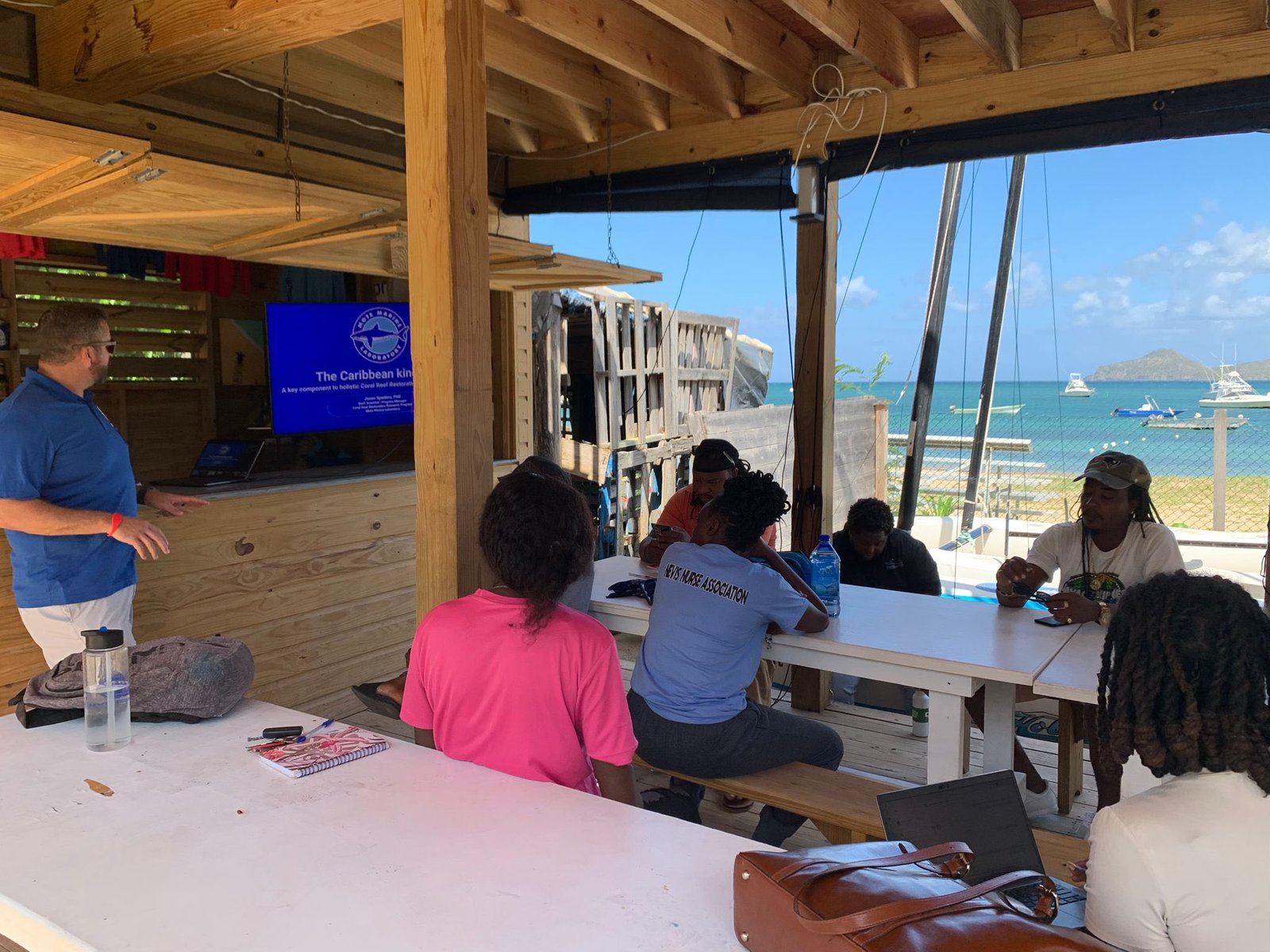Sustainable King Crab Aquaculture in St. Kitts and Nevis
Caribbean King Crab Initiative: A Multifaceted Approach to Marine Ecosystem Restoration and Sustainable Livelihoods in Saint Kitts and Nevis
The dual-island nation of Saint Kitts and Nevis is embarking on a pioneering initiative centered around the Caribbean King Crab, a vital player in maintaining the health of coral reefs. This multifaceted project, a collaborative effort between the Department of Marine Resources, the Caribbean Aquatic Restoration Effort St. Kitts and Nevis (CARE SKN), and international partners, aims to address several interconnected challenges facing the marine environment and local communities. By integrating coral reef restoration, sustainable fishing practices, and alternative livelihood creation, the initiative seeks to foster a holistic approach to ocean conservation and economic development.
The Ecological Significance of Caribbean King Crabs and the Threat to Coral Reefs
Coral reefs, often referred to as the "rainforests of the sea," are among the most biodiverse ecosystems on Earth. They provide habitat for countless marine species, protect coastlines from erosion, and support tourism and fisheries. However, these vibrant ecosystems are under increasing threat from a variety of factors, including climate change, pollution, and overfishing. One particularly insidious threat is the proliferation of algae, which can smother corals and disrupt the delicate balance of the reef ecosystem. Caribbean King Crabs play a crucial role in controlling algal growth, acting as natural grazers that keep these fast-growing plants in check. By promoting healthy populations of King Crabs, the initiative aims to bolster the resilience of coral reefs and enhance their ability to withstand environmental stressors.
Empowering Local Communities Through Training and Alternative Livelihoods
The initiative recognizes the importance of engaging local communities in conservation efforts. By providing training in King Crab farming, the project offers fishers an alternative livelihood that reduces pressure on wild fish stocks while generating income. This approach aligns with the principles of sustainable development, promoting economic growth while protecting the environment. The training sessions, facilitated by experts like Dr. Jason Spadaro of the Mote Marine Laboratory & Aquarium, equip participants with the knowledge and skills necessary to successfully cultivate King Crabs. This empowers local communities to become active stewards of their marine resources and contributes to long-term economic resilience.
Building Capacity and Fostering Collaboration: A Partnership for Success
The success of the Caribbean King Crab initiative hinges on collaboration and capacity building. By bringing together government agencies, local organizations, and international experts, the project fosters a shared vision for marine conservation and sustainable development. The stakeholder meeting held on May 8th, 2025, served as a platform for sharing information about the initiative’s goals and benefits, highlighting the economic and environmental advantages of King Crab farming. The construction of crab cages and the commencement of training sessions mark tangible steps towards implementing the project’s vision. This collaborative approach ensures that the initiative benefits from a diverse range of expertise and strengthens local capacity for long-term management of marine resources.
Economic and Environmental Benefits: A Sustainable Path Forward
The Caribbean King Crab initiative promises a range of economic and environmental benefits. By promoting sustainable King Crab farming, the project aims to reduce fishing pressure on wild populations, allowing them to recover and replenish. This contributes to the overall health and biodiversity of the marine ecosystem. The initiative also creates new economic opportunities for local communities, providing alternative livelihoods and fostering economic diversification. Furthermore, the restoration of coral reefs through algae control enhances the resilience of these vital ecosystems, protecting them from further degradation and ensuring their continued contribution to tourism, fisheries, and coastal protection.
A Vision for a Resilient Future: Integrating Conservation and Sustainable Development
The Caribbean King Crab initiative exemplifies a holistic approach to marine conservation, recognizing the interconnectedness of ecological health and human well-being. By integrating coral reef restoration, sustainable fishing practices, and alternative livelihood creation, the project aims to create a more resilient future for Saint Kitts and Nevis. This forward-thinking initiative serves as a model for other island nations facing similar challenges, demonstrating how collaborative efforts can empower communities to protect their marine resources while building a sustainable and prosperous future. The support of government officials, such as Federal Minister of Agriculture, Hon. Samal Duggins, underscores the importance of this initiative for the nation’s economic and environmental well-being. By investing in training, livelihoods, and economic resilience, the project paves the way for a future where both people and nature can thrive.
Share this content:












Post Comment